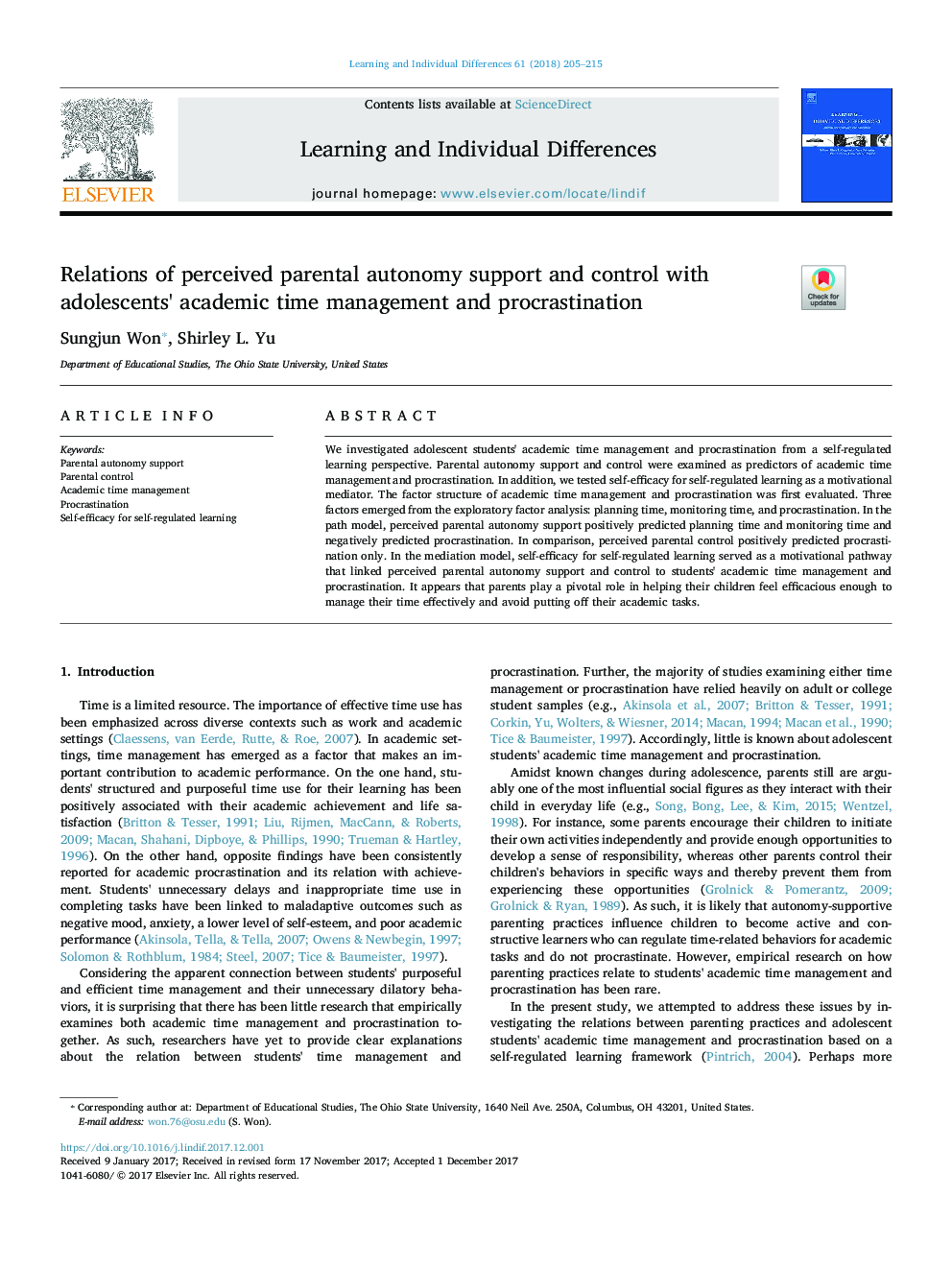| Article ID | Journal | Published Year | Pages | File Type |
|---|---|---|---|---|
| 6844557 | Learning and Individual Differences | 2018 | 11 Pages |
Abstract
We investigated adolescent students' academic time management and procrastination from a self-regulated learning perspective. Parental autonomy support and control were examined as predictors of academic time management and procrastination. In addition, we tested self-efficacy for self-regulated learning as a motivational mediator. The factor structure of academic time management and procrastination was first evaluated. Three factors emerged from the exploratory factor analysis: planning time, monitoring time, and procrastination. In the path model, perceived parental autonomy support positively predicted planning time and monitoring time and negatively predicted procrastination. In comparison, perceived parental control positively predicted procrastination only. In the mediation model, self-efficacy for self-regulated learning served as a motivational pathway that linked perceived parental autonomy support and control to students' academic time management and procrastination. It appears that parents play a pivotal role in helping their children feel efficacious enough to manage their time effectively and avoid putting off their academic tasks.
Related Topics
Social Sciences and Humanities
Psychology
Developmental and Educational Psychology
Authors
Sungjun Won, Shirley L. Yu,
